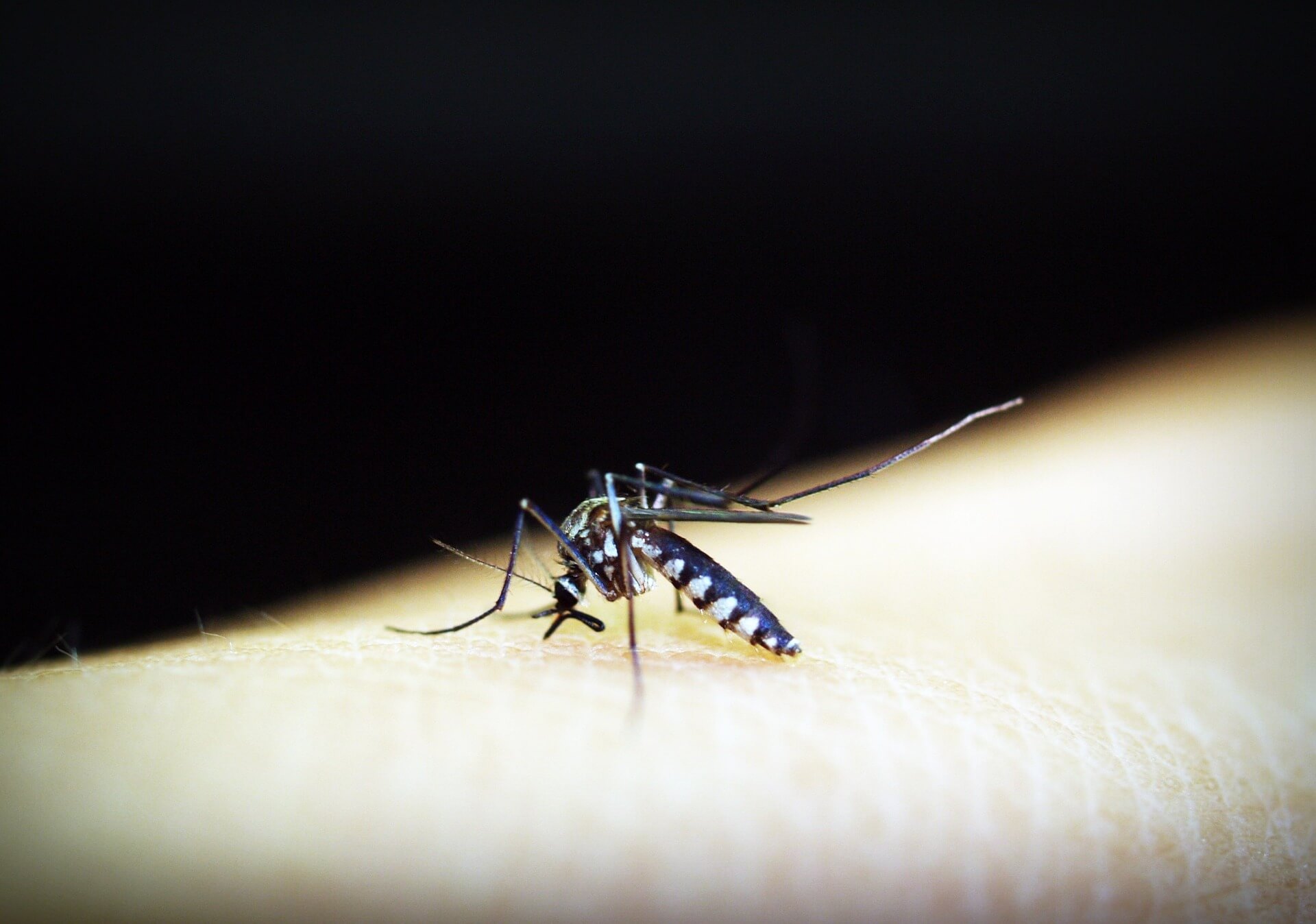What is Dengue and when should you consider it if you get a febrile illness?
Dengue is a viral illness transmitted by a mosquito known as Aedes. Patients develop fever, often associated with headache, pain behind the eyes, and muscle/joint pains. Early diagnosis, proper monitoring, and timely treatment can prevent complications of dengue. Most of the time, it presents as simple viral fever. But some people can have a complicated version of the illness called ‘Dengue Haemorrhagic Fever’, where plasma leaks into your abdomen and lungs, causing low blood pressure and organ damage.
How do we diagnose dengue?
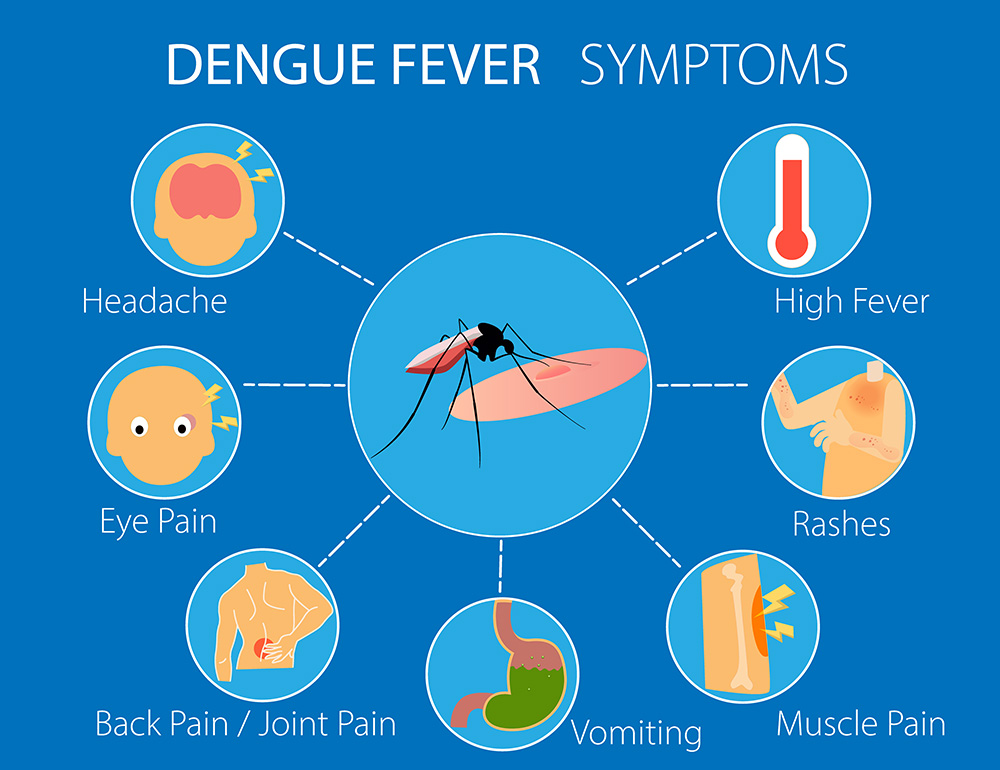
It is diagnosed mainly based on your clinical signs and symptoms. Dengue antigen test may help in the diagnosis. Full blood count shows low white cell count and platelet count.
What should be done after confirming the diagnosis of dengue?
A doctor should decide the following upon assessing a suspected/confirmed dengue patient:
- Avoid exertion and take adequate rest
- Drink adequate fluids
- Take paracetamol as advised by your doctor
- Avoid aspirin, dexamethasone, and other painkillers
- Avoid dark-coloured (red, black, or brown) fluids
- You may be requested to stop some drugs which are given for chronic diseases
- Keep an eye on the amount and colour of urine
- Be mindful of warning signs
- Revisit your doctor as advised
- You may be required to repeat blood counts
What are the warning signs during home-based care?
- Inability to take oral fluids
- Persistent vomiting and diarrhoea
- Abdominal pain
- Bleeding
- Reduction in urine output, dark concentrated urine
- Faintness, difficulty in standing up from sitting or lying down position
- Altered level of consciousness, confusion, and irritability
- Undue fatigue
When should you consider admitting to a hospital?
- If you have any warning signs
- When the blood platelet count is less than 130,000
- Multiple comorbidities or pregnancy need early admission
- A positive Dengue Antigen Test is not an indication for admission
What will happen to you after admission?
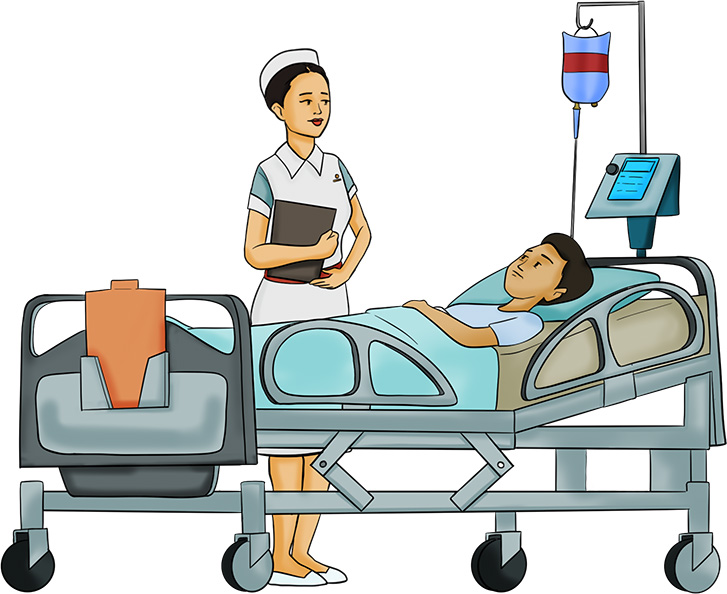
- Once admitted you will have regular medical and nursing attention
- Your temperature, pulse, blood pressure, fluid intake, and urine output will be monitored
- Regular blood sampling would be done
- A bedside ultrasound scan will be done when indicated
What is Dengue Haemorrhagic Fever?
- It is the complicated version of dengue fever.
- This is the phase where plasma leaks out. It usually lasts for around 48 hours.
- The fever usually subsides and the patient will feel uncomfortable with abdominal pain, vomiting, and faintness.
- Patients should be monitored closely in a hospital during the critical phase to prevent complications.
When would you be discharged?
- If you have uncomplicated dengue fever – when the fever settles and you feel well.
- If you have dengue haemorrhagic fever – once the critical phase is over and you are feeling well.
- Itching of the palms and soles is a feature of recovery.
- Rising platelet count and regaining appetite are features of recovery.
What precautions are to be taken upon discharge?
- Adequate rest is needed for a few days.
- You might be asked to repeat the blood count.
- Seek medical advice before engaging in strenuous work/exercise.
Does the platelet count have any bearing on the severity of dengue?
- We use many clinical parameters to assess the severity and platelet count is only one such parameter.
- It is used to support clinical diagnosis and to consider admission.
- A rising platelet count will usually indicate that the patient is heading for recovery.
- However, if the platelet count drops rapidly during home-based care you should be admitted immediately.
What is the role of certain native products on the outcome of dengue?
- Many native products are popular in some areas as a treatment for dengue.
- There is no definite treatment for dengue, and the mainstay of treatment is close monitoring and judicious fluid intake during the critical phase.
- Although many native products have been advertised, none of them have proven to be beneficial.
How can you prevent the spread of dengue?
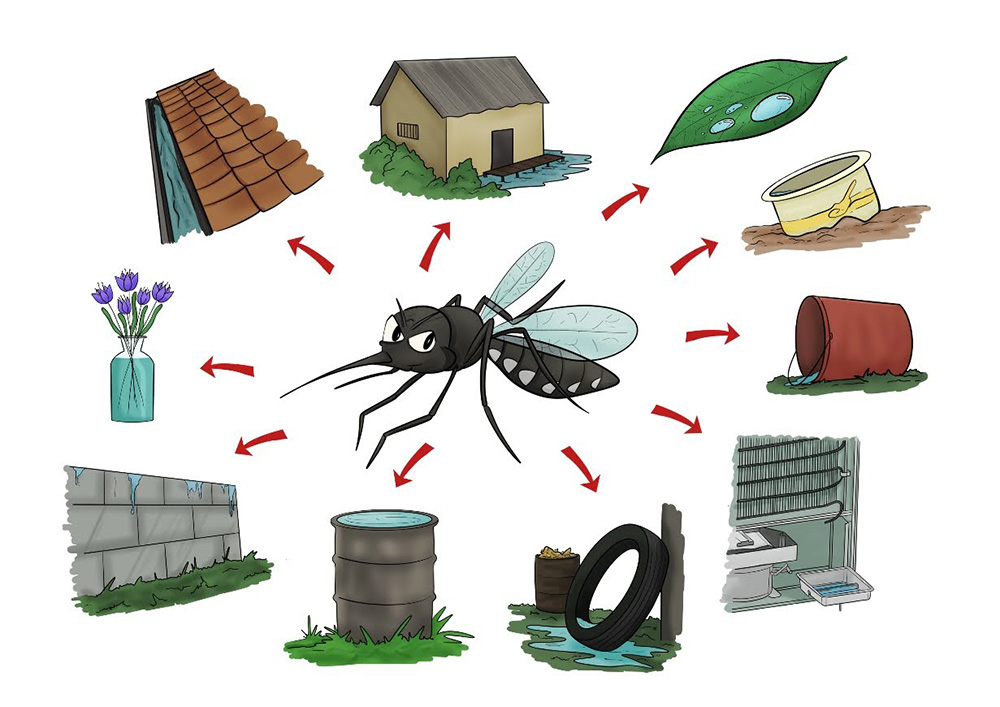
- Keep your home garden free of mosquito breeding places.
- Discard clear water collections – flower pots, gutters, discarded tyres, construction sites, etc.
- Take measures to minimise mosquito bites (use mosquito repellents and mosquito nets).
- Keep your property clean and get advice from preventive health teams if necessary.
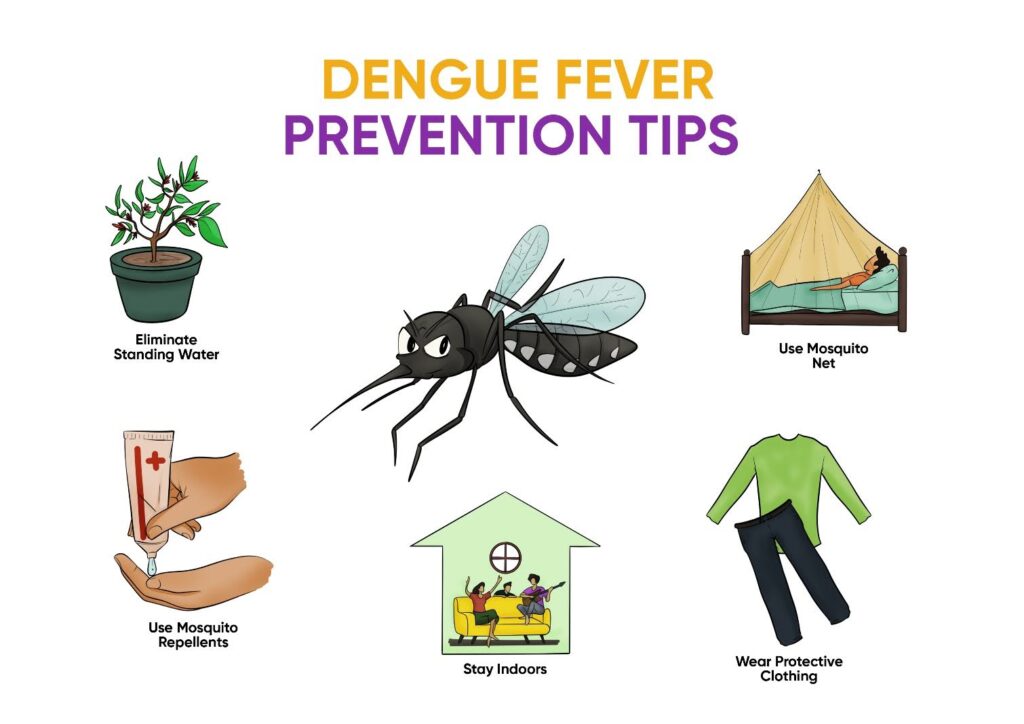




 info@slcim.com
info@slcim.com